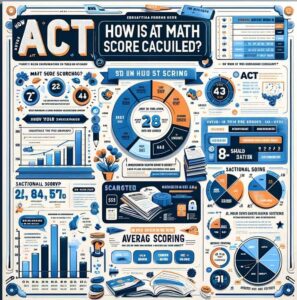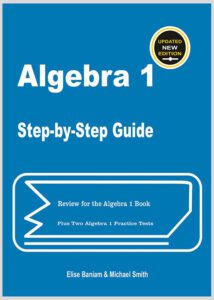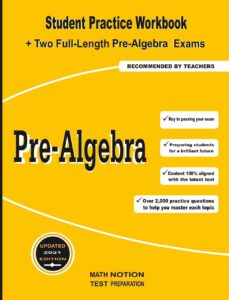
How is ACT Math Score Calculated?
In today’s educational landscape, standardized testing is crucial in assessing a student’s readiness for college. One such test is the ACT (American College Testing), which comprises various sections, including Math. Understanding how the ACT Math score is calculated is essential for students looking to improve their performance and boost their college prospects. This comprehensive guide delves into the intricacies of ACT Math scoring, shedding light on the scoring system, the types of questions asked, and valuable tips for achieving a high Math score.
Introduction
The ACT is a standardized test widely accepted by colleges and universities in the United States. It assesses a student’s knowledge in various subject areas, one of which is Mathematics. A student’s performance in the ACT Math section can significantly impact their overall ACT composite score and, consequently, their college admissions prospects.
Understanding the ACT Math Section
Before we dive into the scoring specifics, it’s crucial to understand the ACT Math section’s content. This section consists of 60 multiple-choice questions that assess your mathematical skills in various areas, such as algebra, geometry, trigonometry, and basic arithmetic. The questions are divided into three categories: Pre-Algebra/Elementary Algebra, Intermediate Algebra/Coordinate Geometry, and Plane Geometry/Trigonometry.
The ACT Math Score Range
The ACT Math section is scored on a scale of 1 to 36, with one being the lowest and 36 being the highest score. Your raw score, the number of correct answers, is first calculated. There is no penalty for incorrect answers, so it’s advantageous to guess if you’re unsure about a question.
How is the ACT Math Score Calculated?
The ACT Math score is derived from your raw score through a process known as equating. Equating ensures that scores from different test administrations are comparable. This means that if one test is slightly more challenging than another, the equating process adjusts the scores accordingly to maintain fairness.
After equating, your raw score is converted into a scaled score ranging from 1 to 36. Each scaled score corresponds to a specific percentile, which indicates the percentage of test-takers who scored lower than you. For instance, a scaled score 30 might correspond to the 90th percentile, meaning you scored higher than 90% of test-takers.
Tips for Improving Your ACT Math Score
Achieving a high ACT Math score requires diligent preparation and practice. Here are some tips to help you improve your Math performance:
- Understand the Format: Familiarize yourself with the types of questions asked in the ACT Math section.
- Practice Regularly: Solve practice questions and full-length ACT Math tests to build confidence and speed.
- Time Management: Manage your time wisely during the test to ensure you can answer as many questions as possible.
- Review Math Concepts: Brush up on essential math concepts, formulas, and equations.
- Eliminate Wrong Answers: Use the process of elimination to increase your chances of selecting the correct answer.
- Seek Help if Needed: If you’re struggling with specific math topics, consider getting a tutor or using online resources.
- Stay Calm: During the test, remain calm and focused. Don’t let difficult questions shake your confidence.
Conclusion
Understanding how the ACT Math score is calculated is crucial for students aiming to excel in this section. Following the tips provided and practicing regularly can increase your chances of achieving a high Math score, enhancing your college admissions prospects.
FAQs
- Is there a penalty for incorrect answers in the ACT Math section? No, there is no penalty for wrong answers. It’s advantageous to guess if you’re unsure about a question.
- How many questions are there in the ACT Math section? The ACT Math section consists of 60 multiple-choice questions.
- What is a good ACT Math score? A good ACT Math score varies depending on the colleges or universities you’re applying to. However, a score above 30 is generally considered competitive.
- Can I use a calculator in the ACT Math section? Yes, you can use an approved calculator in the ACT Math section. It’s essential to familiarize yourself with the calculator’s functions beforehand.
- How often can I take the ACT? You can take the ACT up to 12 times in your lifetime, with a maximum of 6 times in a calendar year. It’s advisable to check the testing policies of the colleges you’re interested in to determine the best testing strategy for you.




